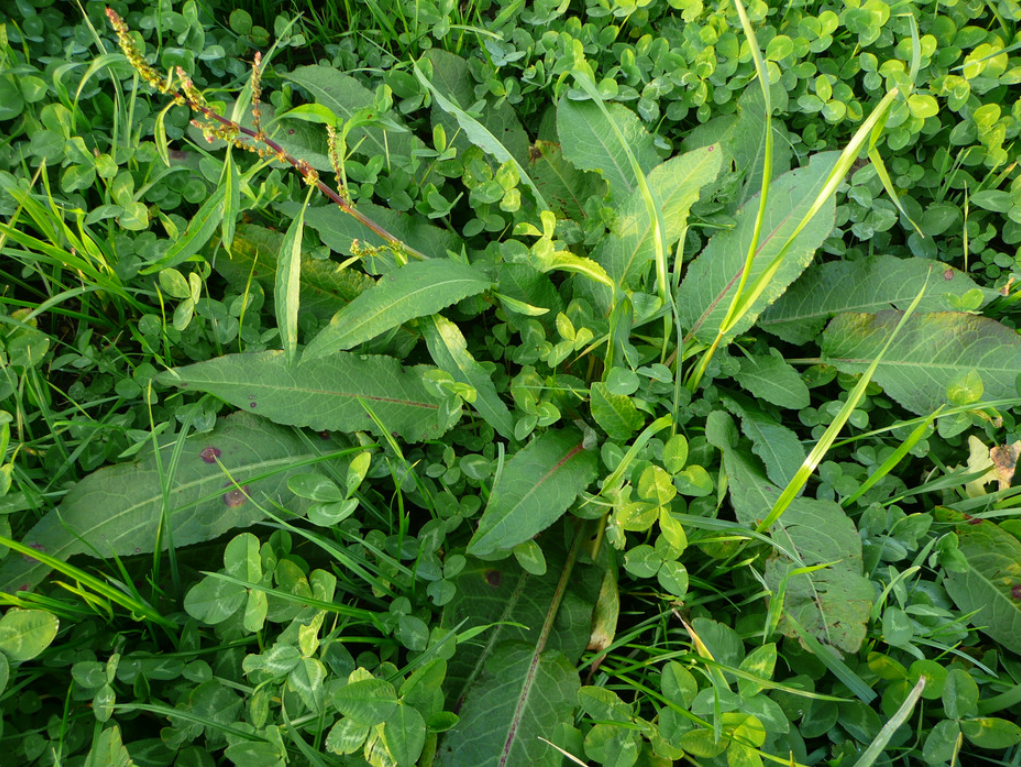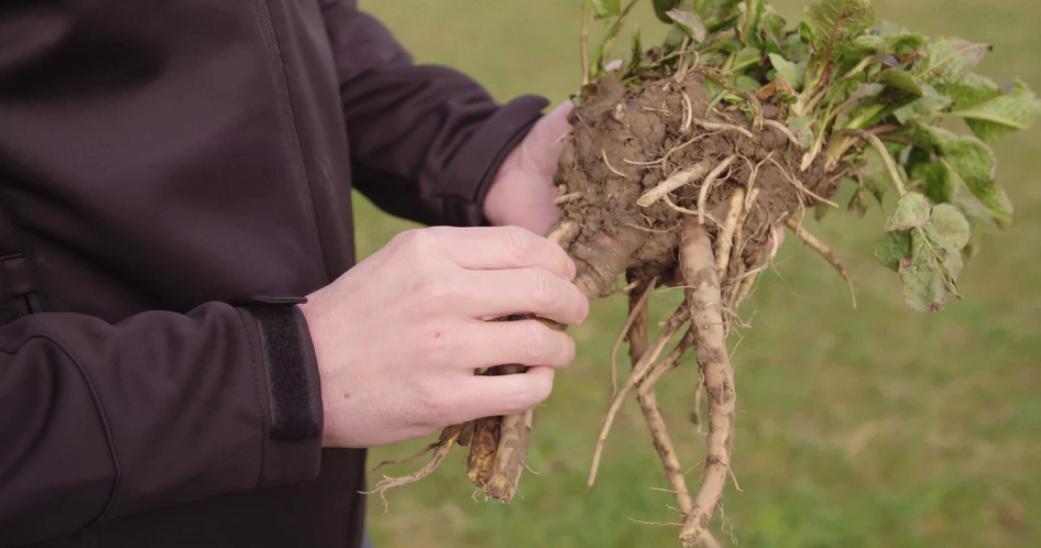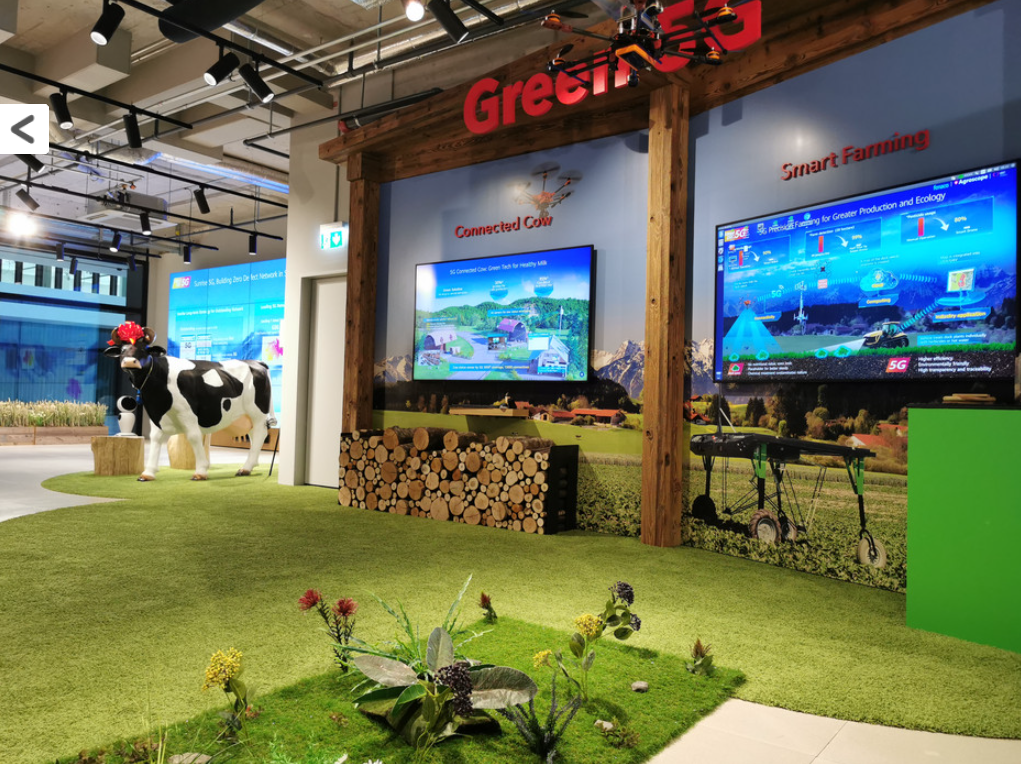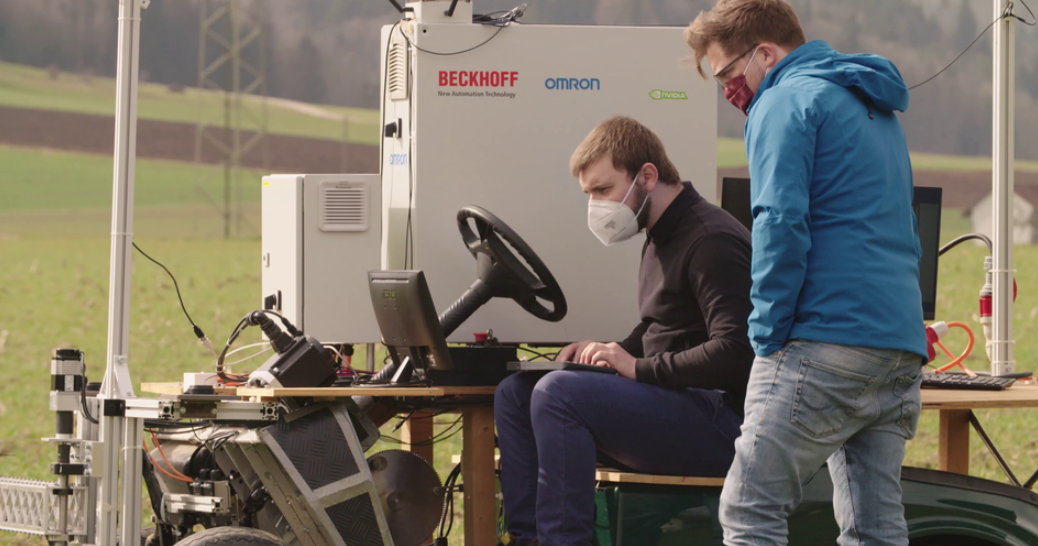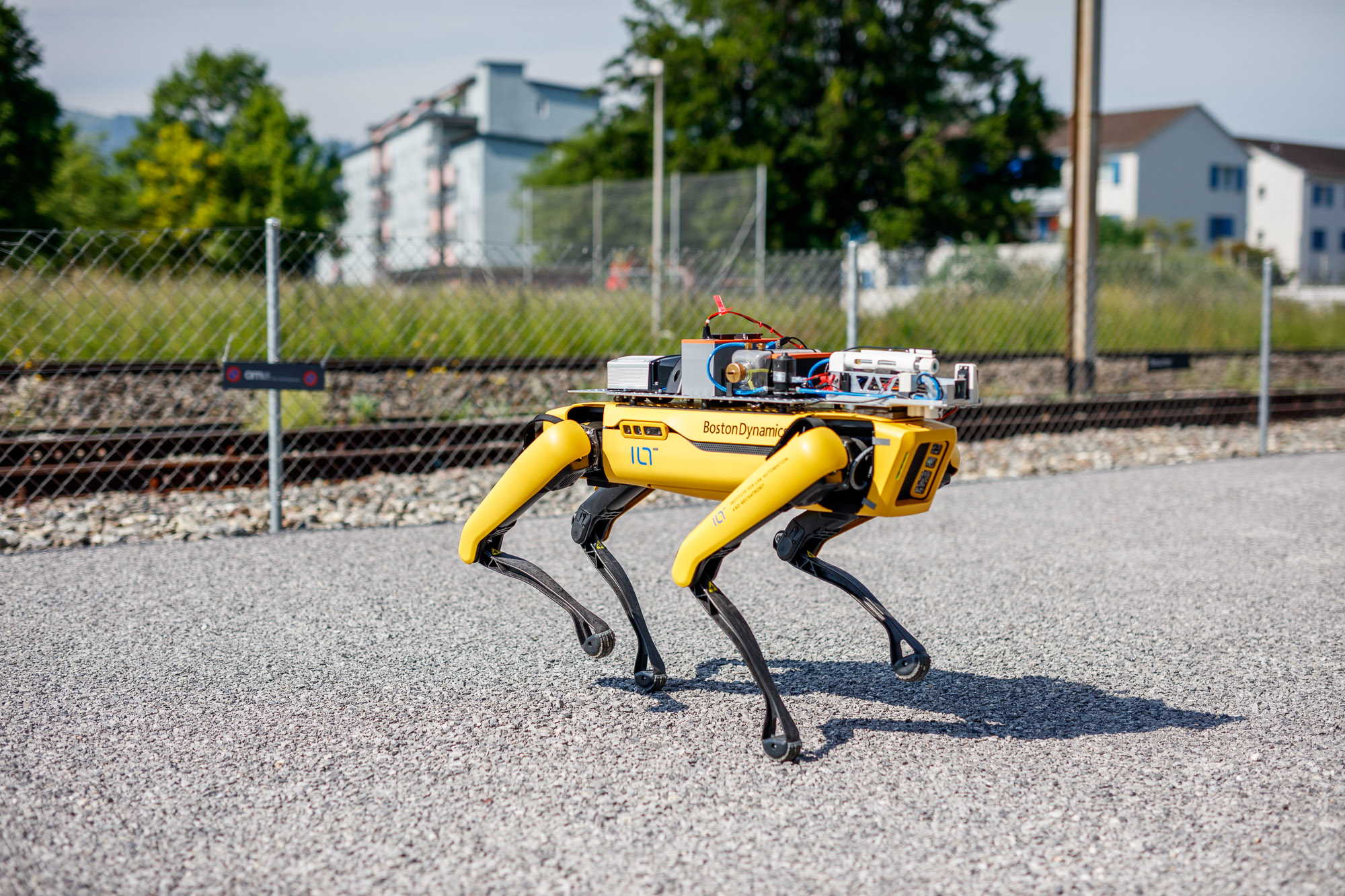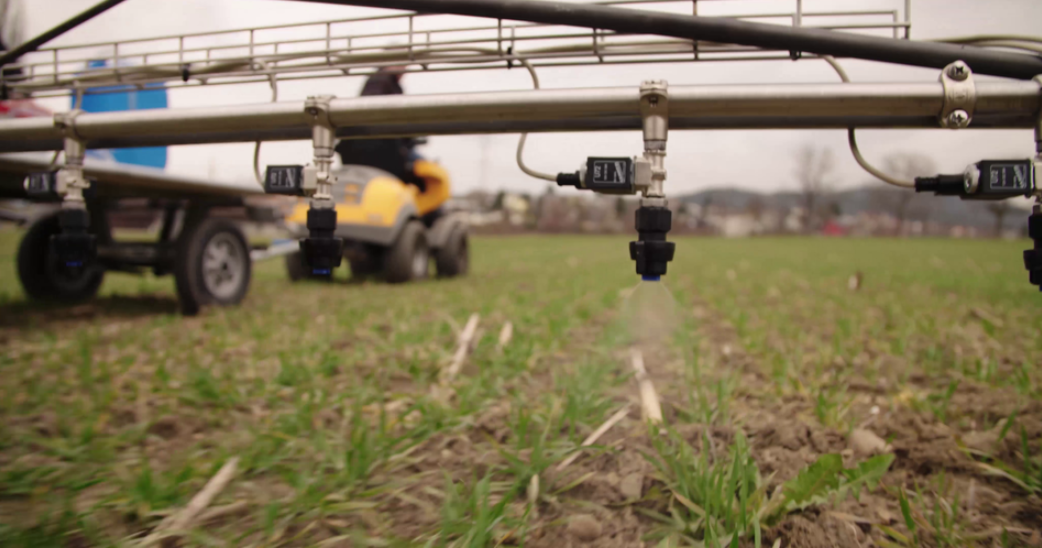Research project
Big Data and 5G in agriculture
Five partners pool their competences for a sustainable future of Swiss agriculture, media release of 30 March 2021
Video zu Big Data und 5G für eine Landwirtschaft mit Zukunft
fenaco, Agroscope, the University of Applied Sciences OST as well as Sunrise UPC and Huawei are bringing their expertise together to advance smart technologies based on 5G for Swiss agriculture. Together they are implementing an Innosuisse project to control weeds using drones and agricultural robots. In this context, the "Smart Farming" area was expanded at the Joint Innovation Center of Sunrise UPC and Huawei. It shows current applications and makes it possible to experience the benefits of the technologies for more sustainability and efficiency in agriculture.
The experts from fenaco, Agroscope, the OST- Ostschweizer Fachhochschule (University of Applied Sciences of Eastern Switzerland) as well as Sunrise UPC and Huawei agree that technological innovations are needed for sustainable agriculture. Thanks to low latency times, the transmission of immense data volumes and the high volume of simultaneous connections, 5G creates the conditions for the Internet of Things to make its way into agriculture. In combination with other smart technologies such as cloud, big data, artificial intelligence, image recognition, sensor and drone technology as well as robotics and autonomous vehicles, applications are becoming possible that reduce the environmental impact of pesticides, lead to the careful use of natural resources, to increased animal welfare and to higher yields for farmers while saving costs at the same time.
"The developments in image recognition and autonomous driving that we are working on are only feasible with a developed 5G infrastructure. We are still at the beginning of autonomous, collaborative robotic systems for more ecology and efficiency. The goal is to automate and digitalise farm work and processes for a sustainable future of Swiss agriculture."
Dejan Seatovic, Institute Partner at the ILT Institute for Laboratory Automation and Mechatronics and Professor in the Mechanical Engineering and Innovation programme at OST.
Innosuisse project: weed control with drones and agricultural robots
Using the example of an Innosuisse project on weed detection and control, the five partners want to test the combination of these technologies. In concrete terms, the project is concerned with the so-called black dock, a species of dock that displaces other plants. The plants are photographed by drone and the raw data uploaded to the cloud via 5G data connections. There they are analysed and identified in real time. The results are played back to the field, where a tractor or farming robot is navigated to the weed by GPS and combats it. This approach makes weed control very precise. The use of pesticides can be reduced by up to 90 %. In a further development step, the pesticide is to be replaced by hot water. The recognition of plants is becoming increasingly accurate through the use of neural networks and self-learning algorithms. At the same time, data volumes are increasing immensely. The combination of 5G, big data and cloud technology is therefore essential for the success of this innovation project.
Big Data and 5G open the way for data-based agriculture
Thomas Anken, Head of Digital Production at Agroscope, sees great potential for 5G and data-driven agriculture: "Agriculture will be more data-based in the future. Fast and high-volume data transmission is crucial for the central evaluation of decentrally collected data. For this and also to control and monitor autonomous devices, good connectivity, as only 5G offers, is essential."
Michael Feitknecht, Head of the Crop Production Department and Member of the Executive Board of fenaco, adds: "With the combination of digitalisation and alternative crop protection, we are creating sustainable solutions for the current challenges in agriculture. For example, ichneumon flies from fenaco already protect 15% of Swiss maize from the European corn borer. 40% of this is applied via drones. We hope that the Innosuisse project will provide a further digitalisation boost for Swiss agriculture and reduce the risks associated with the use of plant protection products in our fields."
Dejan Seatovic, institute partner at the ILT Institute for Laboratory Automation and Mechatronics and professor in the Machine Technology and Innovation course at the OST - Ostschweizer Fachhochschule in Rapperswil, is certain: "The developments in image recognition and autonomous driving that we are working on are only feasible with a developed 5G infrastructure. We are still at the beginning of autonomous, collaborative robotic systems for more ecology and efficiency. The goal is to automate and digitalise farm work and processes for a sustainable future of Swiss agriculture."
Alexander Lehrmann, Innovation and Development Leader at Sunrise UPC, explains: "We complement and expand the practical knowledge and many years of experience of farmers with our 5G ecosystem. We see Sunrise UPC as an 'innovation enabler', working in close partnership with industry experts to examine the potential uses and interplay of technologies and to design and implement integrated solutions. Thanks to excellent cooperation between research, vendors and users, innovation can be driven for the benefit of all."
Haitao Wang, CEO of Huawei Switzerland, comments: "Requirements such as those described can be optimally solved with 5G. This means that even the most remote areas of Switzerland will be networked and connected to a future-proof basic infrastructure. Our technologies are thus making a contribution to the digitalisation of Switzerland and to increasing the competitive strength of one of its most traditional industries. We are proud of this.
Project manager
Prof. Dr. Dejan Šeatović
ILT Institut für Laborautomation und MechatronikLeiter Kompetenzbereich Intelligente Systeme
+41 58 257 47 04dejan.seatovic@ost.ch

